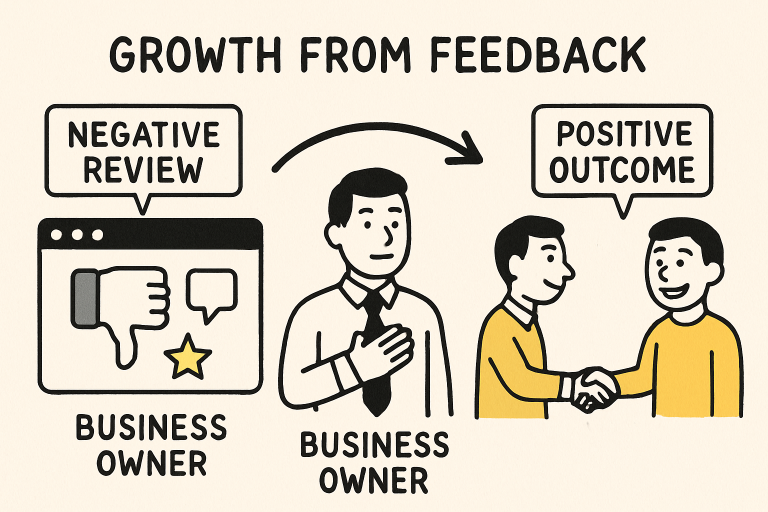Key Takeaways
- Online reviews influence nearly 90% of consumer buying decisions, shaping brand perception rapidly.
- Addressing negative feedback empathetically can boost trust and foster customer loyalty.
- Businesses that take constructive criticism seriously often see measurable improvements in products and services.
- Professional communication transforms dissatisfied voices into advocates and problem solvers.
- Resourceful organizations leverage reviews to stay ahead of market expectations and trends.
- Helpful tactics, such as follow-up strategies and transparency, nurture resilient and impactful online reputations.
Why Online Reviews Wield Significant Influence
Word of mouth travels with extraordinary speed in today’s digital landscape, carrying the power to shape purchasing decisions and brand perceptions almost instantly. Nearly 90% of consumers now trust online reviews as much as personal recommendations. Each review, whether glowing or critical, leaves an imprint that can resonate far beyond its original audience. This highlights the pressing need for businesses to be not only aware of online feedback but also proactive in managing it.
The rise of online consumer feedback has made reputation management SEO solutions essential for businesses seeking to safeguard and enhance their digital presence. Such services enable brands to monitor, respond to, and shape the impact of online reviews, ensuring that both praise and criticism contribute to ongoing improvement.
Responding To Negative Feedback: Do’s And Don’ts
- Do: Respond politely and quickly; delay can signal indifference.
- Do: Acknowledge specific concerns, showing genuine understanding.
- Don’t: Respond defensively or emotionally. Stay calm and constructive.
- Don’t: Use generic replies; personal touches matter.
Approaching negative feedback with empathy is vital. By carefully listening, expressing gratitude for honest critiques, and providing tailored responses, businesses invite constructive conversations that can pave the way to lasting customer loyalty. In contrast, defensive or dismissive replies can fuel negativity and further erode brand reputation.
Turning Criticism Into Product Or Service Improvements
Opportunities for growth often lie buried within negative feedback. According to Entrepreneur, strategically addressing negative reviews can transform challenges into opportunities for improvement. Recurring mentions of issues, whether about delayed shipping, staff behavior, or technical glitches, signal areas ripe for change. By tracking patterns and acting quickly, businesses transition away from mere damage control to ongoing optimization. Regular team meetings to review feedback can inspire innovation and practical solutions that directly address customer concerns. Over time, published updates and visible changes boost brand perception, as consumers appreciate organizations that genuinely evolve in response to their input.

Transparency Builds Authenticity
Modern consumers are quick to notice when brands are forthright about their mistakes. Owning up to errors, sharing the corrective steps being taken, and involving customers in the process builds trust at scale. For example, when hospitality brands have posted about shifting cleaning standards or refunded purchases after publicized mishaps, their sincerity often earns widespread respect and renewed interest. Inviting open dialogue and explaining changes inspired by feedback sets companies apart as truly customer-centric.
When To Take The Conversation Offline
Not every review warrants a lengthy public reply. Sensitive topics, complex grievances, or escalated emotions can often be addressed more effectively through private channels, such as direct email or a phone call. Offering a direct point of contact for resolution demonstrates a commitment to rectifying issues, while also safeguarding customer privacy and minimizing public confrontation. Businesses that strike a balance between public acknowledgment and private resolution often transform unhappy customers into vocal advocates when their needs are addressed sincerely.
Key Steps For Building A Resilient Reputation
- Monitor reviews across all major platforms using reliable tools.
- Establish a process for internal review and escalation of complaints.
- Provide timely, genuine public responses to feedback.
- Follow up privately for a resolution and to maintain a personal connection.
- Track and implement improvements informed by familiar themes in reviews.
- Benchmark progress and communication efforts quarterly.
Looking Ahead: Proactive Strategies For Reputation Growth
Online reputation is dynamic—a direct reflection of how businesses choose to engage with customers. By embracing all reviews as opportunities to demonstrate responsiveness and adaptability, brands cultivate trust, foster loyal communities, and consistently raise the benchmark for excellence. Organizations that actively listen, communicate transparently, and innovate based on feedback remain resilient and competitive in an ever-evolving digital marketplace.

